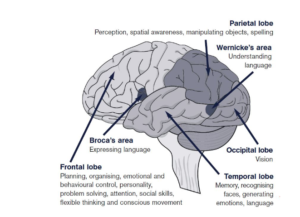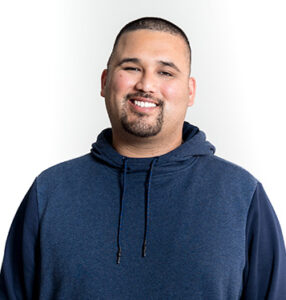How does Speech Therapy after Traumatic Brain Injury facilitate healing?
After Jesús fell off the truck and hit his head, his memory was so damaged, that he couldn’t even remember he had a construction job. He was confused and irritable but most notedly, he could not speak.
He also didn’t know the alphabet or the months of the year. Jesús was very much able to care for himself, he just had trouble remembering and how to speak.
 Recognize Communication Problems
Recognize Communication Problems
Many patients will experience more than one form of communication difficulty after brain injury, depending on the area of the brain and the severity of the injury. It is also important to recognize that such problems may occur alongside other changes in physical, cognitive, emotional, and behavioral functions.
The cerebral cortex is the outer part of the brain which is responsible for our more sophisticated communication skills and injury to any of these areas can impair communication skills.
Photo courtesy of headway.org.uk
Communication and cognitive problems are greatest right after the injury so it’s hard to predict the extent of long-term problems in the first few weeks. These problems depend on factors like the severity of the damage, personality, and pre-injury abilities.
The American Speech-Language-Hearing Association says that patients with traumatic brain injury most often experience difficulties in finding words to express themselves or understanding an idea via speech.
“Nothing in life is more important than the ability to communicate effectively.” Gerald Ford
Importance of Communication
Language is the formal system of words through which we communicate and connects us to the world. People have an innate need to share meaningful information, like ideas and feelings. Survivors of traumatic brain injury are more likely to have long-term problems affecting their personality, relationships, and ability to lead independent life because of communication deficits.
A simple activity such as ordering a meal at a restaurant uses expressive language skills and speech to accomplish this everyday life skill. But to complete this seemingly simple task you need a multitude of communication, language, and speech skills.
The left side of the brain, responsible for speech and language, is called the “dominant” hemisphere because of this important power. The right hemisphere interprets spatial processing and visual information.
Aphasia Rehabilitation
Jesús had cognitive impairments that included severe aphasia, impaired comprehension, and repetition.
- Signs of aphasia include:
- Trouble getting the words out
- Problems comprehending words spoken
- Difficulty doing simple math, writing, or reading
- Can’t process complex or unfamiliar words
Aphasia affects the brain’s ability to speak and comprehend words. Sometimes the injured person can talk, but they don’t make much sense. He or she has to learn to communicate all over again and one of the most important goals of speech therapy.
Speech Therapy for Traumatic Brain Injury
A Speech and Language Pathologist can teach a patient strategies to overcome communication problems like understanding or producing speech correctly (aphasia), slurred speech (dysarthria), or difficulty in working the muscles for speech production (apraxia).
Brain-damaged individuals may also have problems with social communication, like difficulty taking turns in a conversation or keeping a topic of conversation.
Role-playing is the key to re-teaching social skills. A Speech Therapist will work on specific drills and strategies, like back-and-forth conversational skills and word retrieval.
Speech Therapy can improve communication skills far beyond what will occur naturally after a traumatic brain injury.
Jesús was able to live on his own again but he had to relearn a lot of mundane tasks and everyday communication. “I needed to be guided through real life, ” he stated in a recent interview. “I had to go through all these systems. Like (learn) how to buy groceries or how to go to school. My life has changed but I’m adjusting and I keep fighting.”




